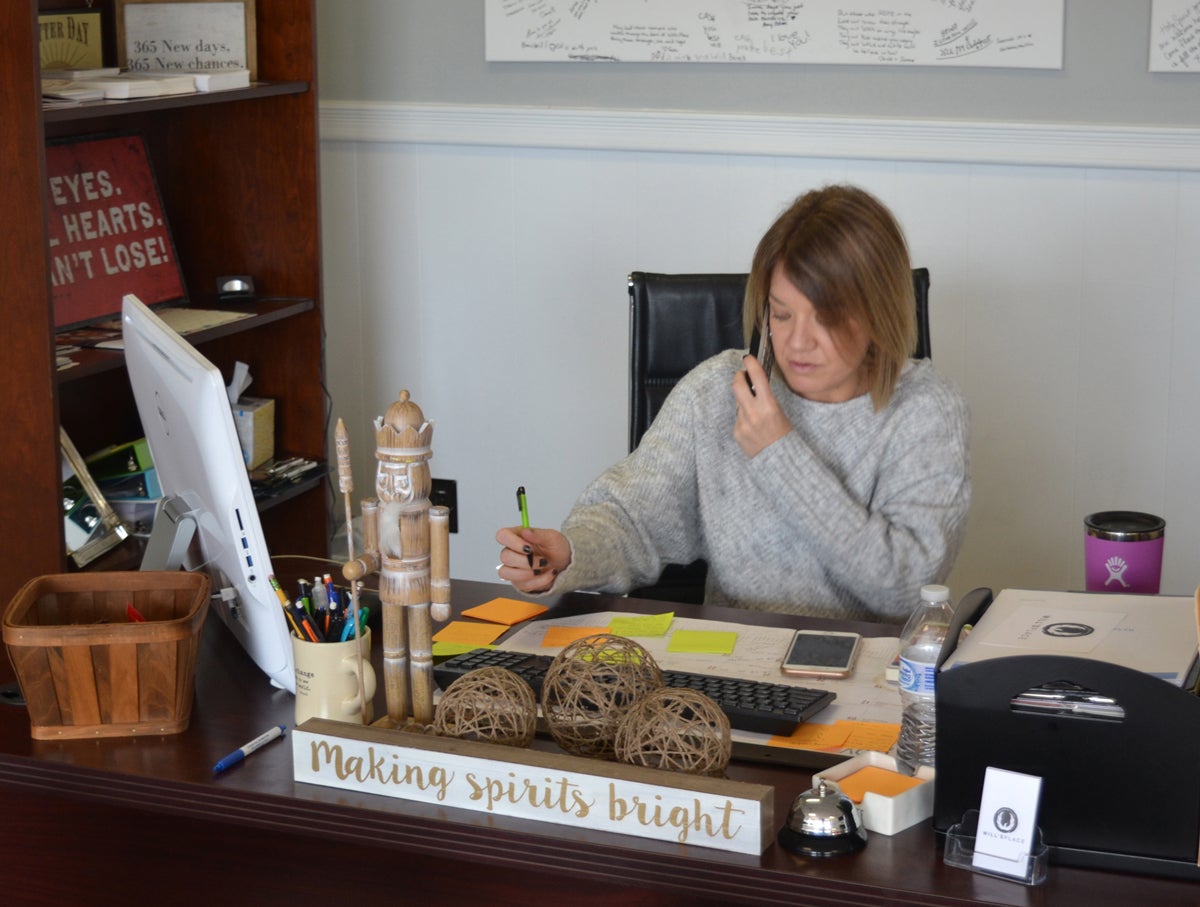Will’s Place guides addicts toward recovery
Published 7:01 pm Friday, November 30, 2018

- Allison Hudson, founder and president of Will's Place.
“Your brokenness is welcome here,” a sign reads inside the office of Will’s Place.
Displayed throughout its downtown Albemarle office is an array of inspirational messages along with volumes of literature about the resources available for addicts seeking recovery.
Most of those resources, however, lie within surrounding counties like Mecklenburg, Cabarrus and Union. While Stanly lacks both a detox and treatment center to combat its escalating opioid crisis, Will’s Place Recovery Resource Center provides a first step.

Hudson
“Detox is going to be your first step,” Allison Hudson, founder and executive director of Will’s Place, tells an addict calling for advice about seeking recovery.
“Most people don’t know where to go,” Hudson said after fielding the call of a local woman seeking help after her boyfriend fatally overdosed.
About 25 calls per week come into Will’s Place. Another 10 visitors walk into the 132 South Second St. office looking for help.
November marked the one-year anniversary since Will’s Place opened, about three years after it was first conceptualized. At the very least, Will’s Place offers an accepting and nonjudgmental gateway so addicts can start their road toward recovery.
Will’s Place provides treatment options, education and awareness programs while advocating for those impacted by addiction.
Once beyond detox and treatment, Will’s Place offers peer support and recovery coaching, such as helping them find jobs and improve skills.
“We’re not doing any treatment as of yet. We’d like to eventually,” Hudson, 39, said of Will’s Place’s long-term plans.
“Our goal is you come in for help, then you come back for more help,” she added.
Not only is the advocacy progressing, it’s doing so with employees with skin in the game.
Plans call for Delton Russell, an engagement specialist with Cardinal Innovations for the past six years, to join the staff at Will’s Place by the start of the year.
A former teenage addict, Russell’s contributions should help Will’s Place take another step at becoming “a full-blown recovery organization” and a place where people in recovery can be with others in recovery.

Russell
“I get to share lived experiences,” Russell, 40, said. “I am open and transparent about what has made my recovery sustainable.”
Users turn to drugs as a substitute for coping skills. Since 9 out 10 start using drugs before the age of 18, they suffer from arrested development; therefore, their coping skills never evolve or mature, Russell said.
Because of the impact on youth, Hudson hopes to see more drug prevention programs in the schools.
“That’s who we need to change,” she said.
Structure and stability are critical to sustaining recovery, Russell said.
“What you put into life, you get out of life,” he said. “Healthy routines are imperative to recovery.”
Like Russell, Hudson is in recovery. As her alcohol increased, she decided to refrain from her drug of choice after her brother Will, whom the center is dedicated, fatally overdosed on fentanyl in 2012.
Between her sobriety and Will’s overdose, Hudson remains determined for Will’s Place to evolve into what she originally envisioned at 540 N. First St. nearly five years ago.
Along with a resource center, she has plans for a living quarters and 12 bedrooms, one for each male in recovery. The projected costs of the sober living and recovery remodeled house is estimated at roughly $800,000.
Will’s Place will help them find jobs as they’ll be required to pay rent as they advance into healthy and productive lifestyles.
As Russell assumes more of the community engagement on behalf of Will’s Place, Hudson plans to devote more time toward fundraising.
As part of its commitment to education, Will’s Place has begun hosting a Recovery Community Action Meeting. From 10:30 a.m.-1:30 p.m. Tuesday, it will host its second forum, a program presented by Erik Kerr, co-founder and CEO of Clear Health Technologies, Inc.
Clear Health is dedicated to eradicating addiction relapse.
Just this week U.S. health officials announced drug overdose deaths eclipsed 70,000 in 2017, an increase of nearly 10 percent for the record high. Most of the overdoses involved opioids.
Suicide rates also rose by 3.7 percent. Between the drug overdose fatalities and suicides, the U.S. life expectancy declined for the second straight year, according to the Centers for Disease Control and Prevention.
West Virginia and Ohio continue to lead the nation in overdose deaths, with Pennsylvania and the District of Columbia in tow.
Stanly County leads all North Carolina counties in overdoses for five consecutive months.



